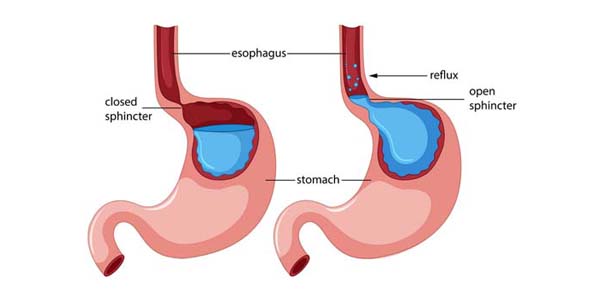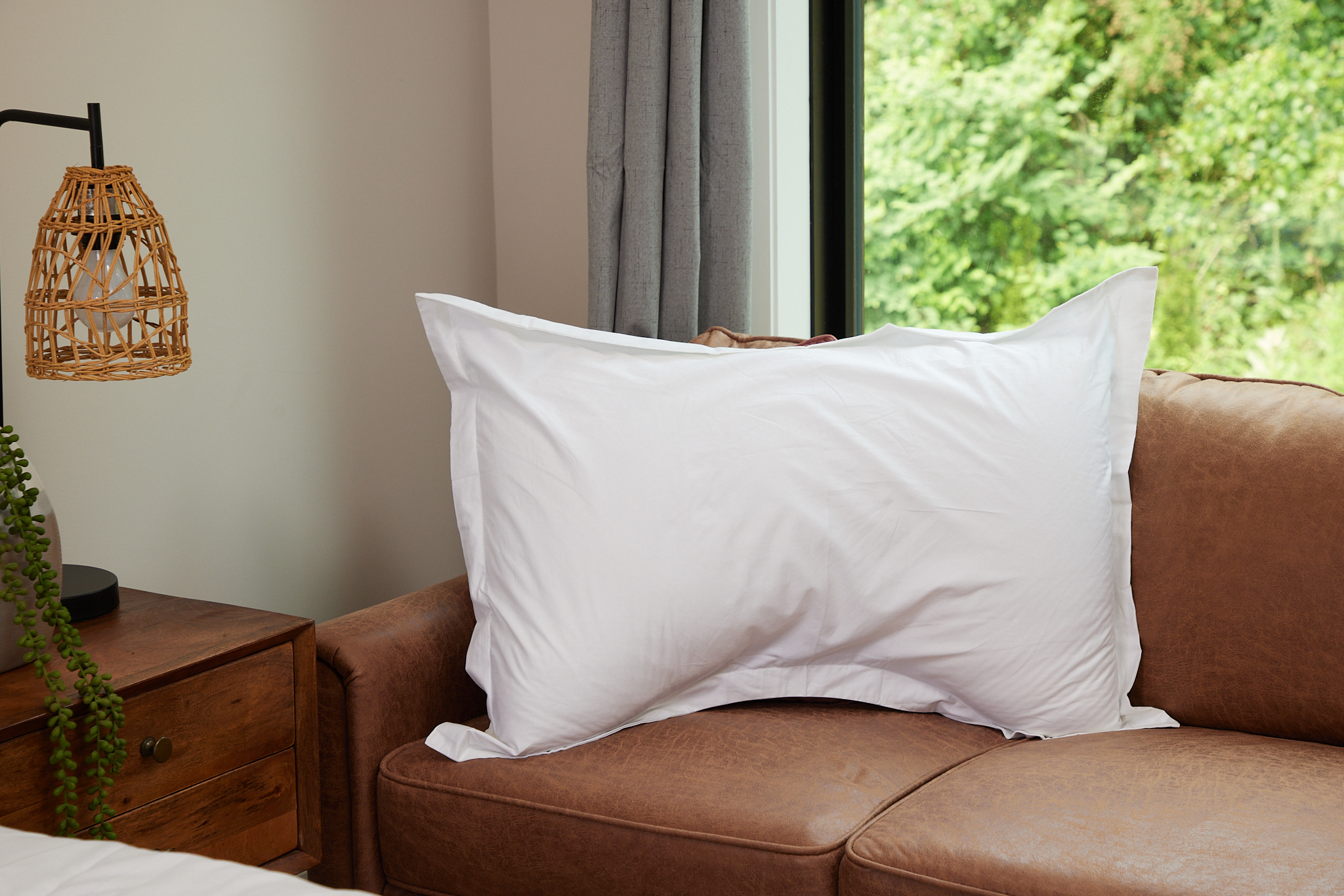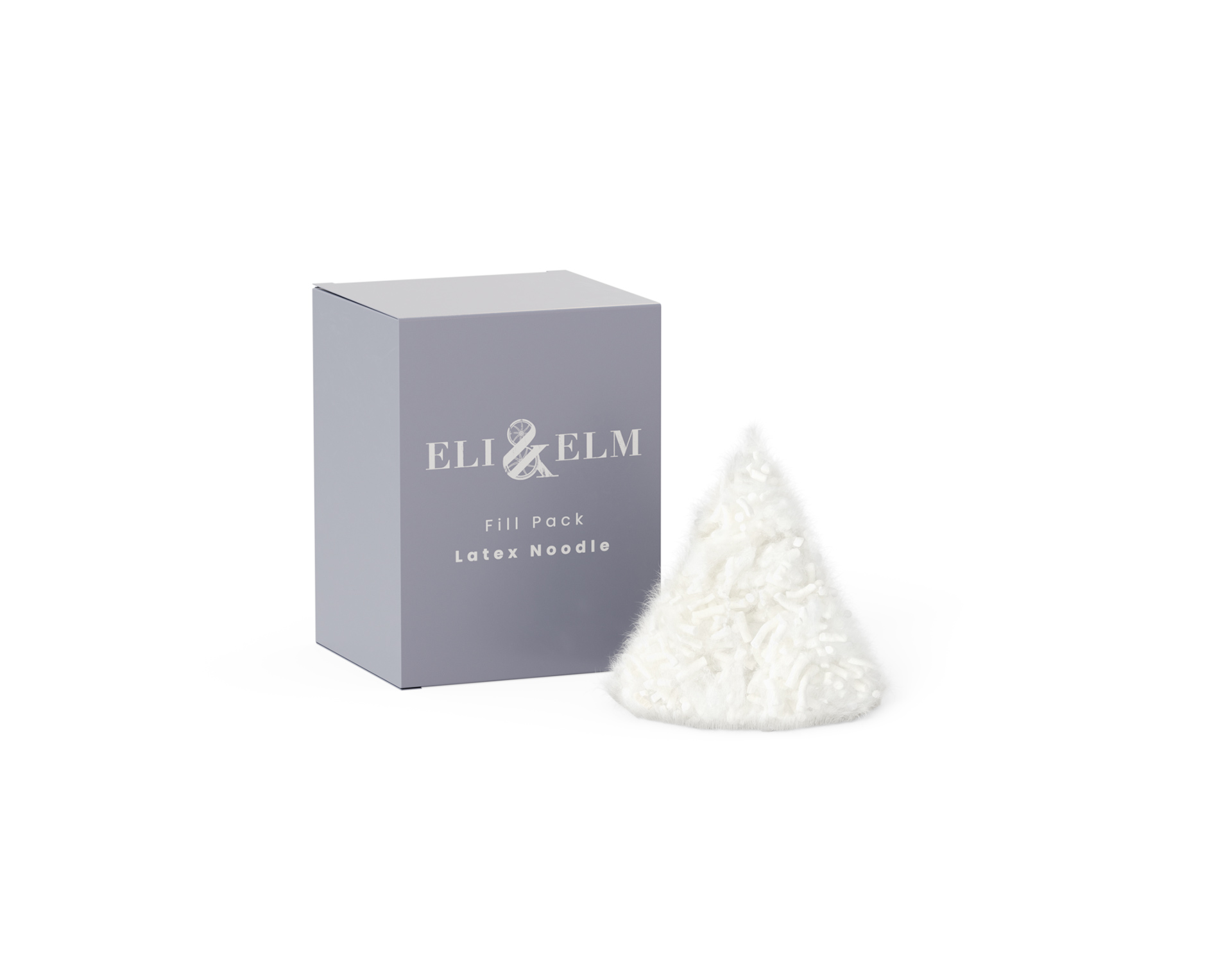Do you lie awake most nights due to acid reflux? That acrid feeling, the burning sensation coursing down from the throat to the stomach, is indeed sleep-jarring. Well, you are not alone. Many people tend to experience problems with acid reflux, and it brings out all of these problems more when entering the night cycle.
The good news is that there are simple ways to manage this uncomfortable condition and finally get a better night's sleep. Here, we will suggest possible ways to get rid of acid reflux and improve your night's rest: no more sleepless nights, but calm and without reflux.
What is Acid Reflux?
Acid reflux occurs when stomach acid and contents return to the esophagus. The lower esophageal sphincter (LES) usually stops this backward movement. However, in people with acid reflux, this muscle may weaken or relax too much, allowing acid to rise from the stomach.
One significant cause of acid reflux is a weak lower esophageal sphincter (LES), through which stomach acid spills back to the esophagus. Obesity, heartburn or acid reflux during pregnancy, hiatal hernia, smoking, certain medications, and dietary choices high in acidity, spices, caffeine, or alcohol are some of the many causes of this disease. Stress and some medical conditions may cause the symptoms to appear and worsen. Sleeping on your stomach can also trigger acid reflux disease quite severely.
Symptoms of acid reflux can include:
Heartburn: A burning sensation in the chest, often after eating or lying down.
Regurgitation: Sour or bitter-tasting acid backing up into the throat or mouth.
Dysphagia: Difficulty swallowing.
Chronic cough: Especially at night.
Laryngitis: Hoarseness or irritation of the vocal cords.
Asthma: Worsening of asthma symptoms.
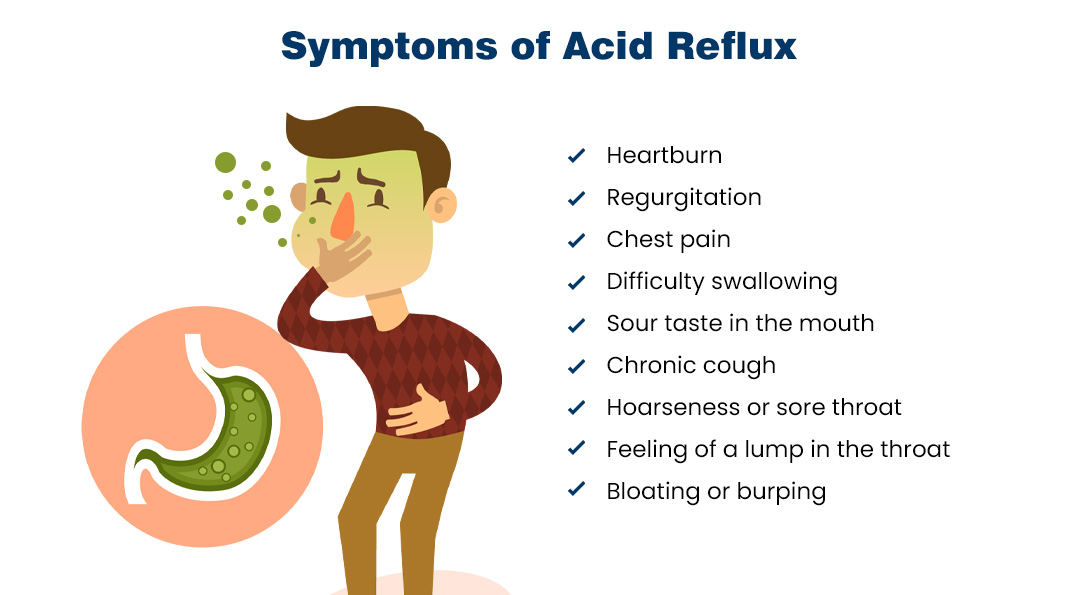
What is GERD?
GERD stands for Gastroesophageal Reflux Disease. This is a lasting stomach issue in which acid or bile seeps back (reflux) into the esophagus, resulting in irritation and inflammation. GERD is a much more severe condition.
The leading cause of GERD is the lower esophageal sphincter (LES), whose weakening is the main culprit. This is the muscle (LES) that usually prevents the backing up of stomach acid. Other factors include obesity, hiatal hernia, pregnancy, and some medications can also contribute to it.
Symptoms of GERD are as follows:
- Heartburn
- Regurgitation
- Dysphagia
- Chronic cough
- Hoarseness
- Chest pain
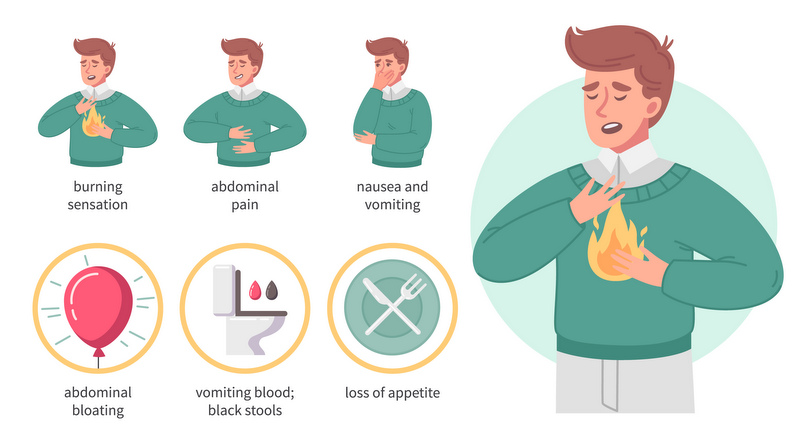
Difference between Acid Reflux and GERD
| Feature | Acid Reflux | GERD |
|---|---|---|
| Definition | Occasional reflux of stomach acid | Chronic condition with frequent reflux of stomach acid or bile |
| Severity | Milder, occasional episodes | More severe, persistent |
| Frequency of Symptoms | Occasional | Frequent, several times a week |
| Treatment | Antacids, lifestyle changes | Medications, lifestyle modifications, and sometimes surgery |
| Complications | Rarely leads to complications | Esophagitis, strictures, Barrett's esophagus, increased cancer risk if untreated |
How Does GERD Get Worse at Night?
GERD often exacerbates during nighttime hours due to several physiological factors. When individuals lie down, the lack of gravity's assistance allows stomach acid to easily flow back into the esophagus through a weakened or relaxed lower esophageal sphincter (LES).
Moreover, swallowing frequency decreases during sleep, reducing the esophagus's natural clearance mechanism for acid. Slower gastric emptying at night also means that stomach contents, including acid, may remain in the stomach longer, increasing the likelihood of reflux. Additionally, increased stomach acid production during certain times of the day can intensify nighttime GERD symptoms.
These factors collectively contribute to more pronounced symptoms such as heartburn, regurgitation, and discomfort during nighttime hours for individuals with GERD. Adjustments in sleeping habits, dietary choices, and medication can help manage and alleviate these symptoms effectively.
Supine Position: When lying down, gravity no longer helps keep stomach acid down in the stomach. This allows acid to reflux into the esophagus easily.
Reduced Swallowing: During sleep, swallowing frequency decreases, which helps clear acid from the esophagus. This can lead to prolonged exposure of the esophagus to stomach acid.
Delayed Gastric Emptying: Some individuals experience slower gastric emptying at night, allowing more time for the acid to reflux into the esophagus.
Increased Acid Production: Acid production in the stomach may increase at night due to certain circadian rhythms and hormonal factors.
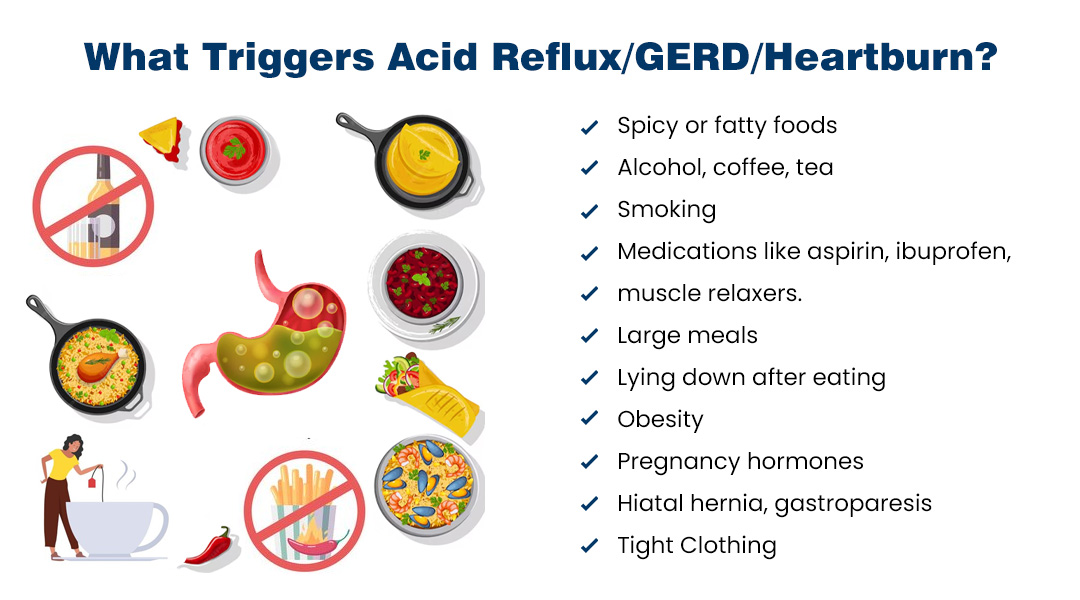
How Does Your Diet and Lifestyle Trigger Acid Reflux/GERD
Serious consequences can arise from GERD and chronic acid reflux. These include esophageal inflammation and ulcers, esophageal narrowing caused by scar tissue, airway spasms, tooth damage, persistent cough, and worsened asthma symptoms.
Barrett's esophagus is a disorder caused by stomach acid damaging the esophagus that affects 10% to 20% of people with GERD. Although not everyone who has Barrett's esophagus goes on to develop esophageal cancer, it is thought to be the leading risk factor.
Diet and lifestyle choices can significantly trigger acid reflux and exacerbate GERD symptoms by affecting the lower esophageal sphincter (LES) and increasing stomach acid production. Certain foods and behaviors can contribute to these issues:
- Trigger Foods: Spicy foods, citrus fruits and juices, tomatoes and tomato-based products, chocolate, caffeine, carbonated beverages, fatty and fried foods, and mint can relax the LES or stimulate acid production, leading to reflux.
- Large Meals: Consuming large meals can increase pressure on the LES and cause stomach contents to push upwards into the esophagus.
- Eating Before Bed: Eating close to bedtime can promote reflux by allowing less time for digestion before lying down, making it easier for stomach acid to reflux into the esophagus.
- Alcohol and Smoking: Alcohol can relax the LES and increase acid production, while smoking can weaken the LES and impair saliva production, which helps neutralize acid.
- Obesity: Excess weight can pressure the abdomen, pushing stomach contents into the esophagus and worsening reflux symptoms.
- Posture and Activity: Lying down or bending over after eating can encourage acid reflux due to changes in abdominal pressure and gravity.
Managing acid reflux and GERD involves identifying trigger foods and behaviors, making dietary and lifestyle adjustments (such as eating smaller meals, avoiding trigger foods, maintaining a healthy weight, not eating close to bedtime, quitting smoking, and moderating alcohol intake), and working with healthcare providers to develop a personalized treatment plan that may include medications or other interventions to alleviate symptoms and prevent complications.
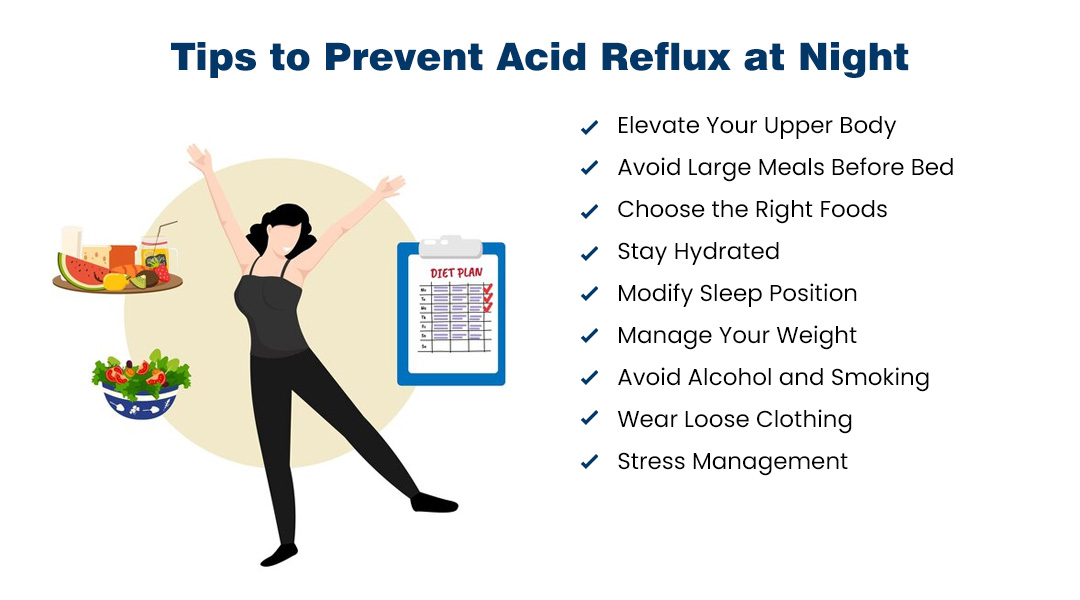
How to Sleep with Acid Reflux?
Preventing acid reflux at night while sleeping can significantly improve comfort and reduce symptoms of GERD. Sleeping with acid reflux can be a little uncomfortable, but here are some tips you can try to make things favorable:
Elevate Your Upper Body
Elevating your upper body with pillows or a bed wedge can help gravity prevent stomach acid from refluxing into the esophagus while you sleep. Elevating your head and chest slightly (about 6-8 inches) is typically recommended to achieve this effect.
Avoid Large Meals Before Bed
Finish eating meals at least 2-3 hours before lying down. When you lie down shortly after eating, gravity can't help keep stomach acid down, increasing the likelihood of reflux. Allowing sufficient time for digestion before lying down can significantly reduce this risk.
Choose the Right Foods
Certain foods can relax the lower esophageal sphincter (LES) or increase stomach acid production, contributing to reflux. Foods to avoid close to bedtime include spicy or acidic foods, chocolate, caffeine (like coffee and tea), and fatty or fried foods. Opt for lighter, easily digestible meals in the evening.
Stay Hydrated
Drink plenty of water throughout the day to maintain hydration, but avoid drinking large amounts close to bedtime. Excessive fluids before bed can distort the stomach and potentially trigger reflux.
Modify Sleep Position
Sleeping on your left rather than your right side can help reduce pressure on the LES and promote better digestion. The anatomical position of the stomach and esophagus can affect how easily acid refluxes.
Manage Your Weight
Maintaining a healthy weight is essential for reducing pressure on the abdomen. Excess weight can push on the stomach and increase the risk of acid reflux. Regular exercise and a balanced diet help achieve and maintain a healthy weight.
Avoid Alcohol and Smoking
Both alcohol and smoking can relax the LES and worsen reflux symptoms. It's best to avoid consuming alcohol and smoking cigarettes, incredibly close to bedtime.
Wear Loose-Fitting Clothing
Tight clothing around the abdomen can increase pressure on the stomach and contribute to acid reflux. Opt for loose-fitting sleepwear that allows your stomach to remain unrestricted.
Practice Stress Management
Stress can exacerbate GERD symptoms by increasing stomach acid production and affecting digestion. Relaxation techniques such as deep breathing exercises, meditation, or gentle yoga before bedtime can help reduce stress levels and improve sleep quality.
Medication Compliance
If your healthcare provider has prescribed medications to manage GERD, such as proton pump inhibitors (PPIs) or H2-receptor antagonists, it's essential to take them as directed. These medications can help reduce stomach acid production and alleviate symptoms, mainly if lifestyle changes alone aren't sufficient to control reflux.
Can a Pillow Affect Heartburn and Acid Reflux?
The type of pillow you use can influence the severity of heartburn and acid reflux, especially when sleeping. A wedge pillow or elevating the head of your bed with additional pillows can help keep your upper body slightly elevated while you sleep. This elevation assists in utilizing gravity to prevent stomach acid from refluxing into the esophagus.
Keeping your head and chest higher than your stomach creates a more favorable angle, reducing the likelihood of acid moving upward. Many individuals with GERD find that sleeping in a slightly inclined position helps alleviate symptoms such as heartburn, regurgitation, and coughing at night.
Choosing the right pillow and adjusting your sleeping position can significantly impact your comfort and the frequency of acid reflux symptoms. For some people, a wedge pillow that raises the head and torso can provide enough elevation to prevent acid reflux during sleep. However, finding a comfortable angle that works for you is essential, as too steep an incline may cause discomfort and affect sleep quality.
Properly supporting your head and neck with a supportive pillow can improve overall comfort and sleep hygiene. If you're experiencing frequent or severe acid reflux symptoms, consulting with a healthcare professional can help determine the best pillow setup and sleeping position tailored to your needs.
Final Thoughts
Managing acid reflux and GERD at night can improve sleep quality and well-being. By incorporating simple lifestyle adjustments such as elevating your upper body, avoiding large meals before bedtime, choosing the right foods, staying hydrated, and practicing stress management, you can significantly reduce nighttime heartburn and acid reflux symptoms.
The appropriate pillow or sleep position can alleviate discomfort and promote restful sleep. Remember, individual responses to these strategies may vary, so it's essential to find what works best for you through experimentation and, if necessary, consultation with a healthcare provider. With these proactive steps, you can say goodbye to sleepless nights and hello to peaceful, reflux-free rest.

